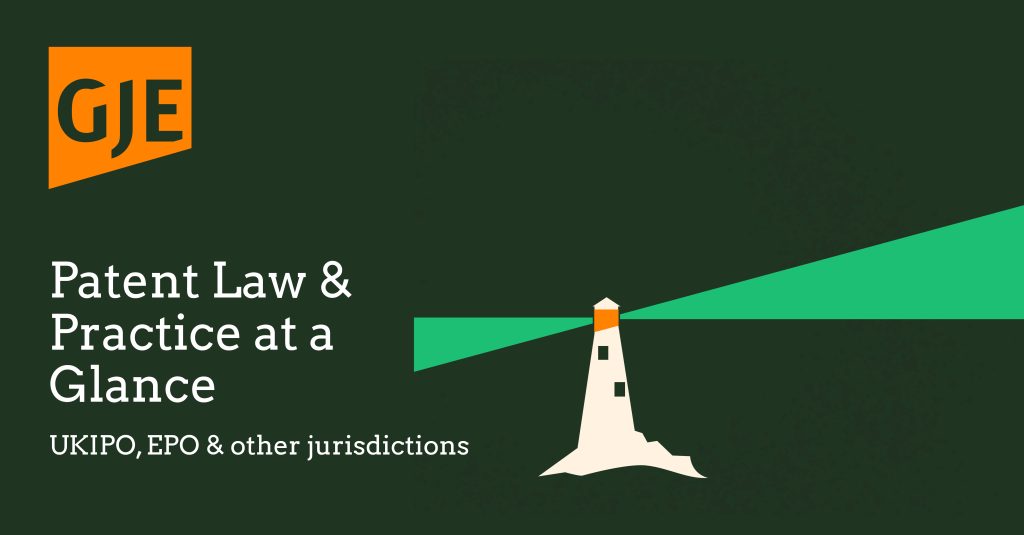The Enlarged Board of Appeal has issued its preliminary opinion on the questions of law referred to it in the highly anticipated referral G 2/21. The referral concerns whether post-published evidence can be used to prove the existence of a technical effect. Although the preliminary opinion is not binding on the Enlarged Board, it provides great insight into the issues that are of significance and will be discussed at the oral proceedings scheduled for 24 November 2022.
Admissibility of the Referral and Questions to be Answered
There have been suggestions in the amicus curiae briefs that the referral should not be admitted, and that the questions referred to the Enlarged Board should be re-drafted. The Enlarged Board has indicated that the referral is admissible, and the Enlarged Board of Appeal will consider the questions of law referred to it. As a brief re-cap, these are:
1. Should an exception to the principle of free evaluation of evidence (see e.g. G 3/97, Reasons 5, and G 1/12, Reasons 31) be accepted in that post-published evidence must be disregarded on the ground that the proof of the effect rests exclusively on the post-published evidence?
2. If the answer is yes (the post-published evidence must be disregarded if the proof of the effect rests exclusively on this evidence), can the post-published evidence be taken into consideration if, based on the information in the patent application in suit or the common general knowledge, the skilled person at the filing date of the patent application in suit would have considered the effect plausible (ab initio plausibility)?
3. If the answer to the first question is yes (the post-published evidence must be disregarded if the proof of the effect rests exclusively on this evidence), can the post-published evidence be taken into consideration if, based on the information in the patent application in suit or the common general knowledge, the skilled person at the filing date of the patent application in suit would have seen no reason to consider the effect implausible (ab initio implausibility)?
Question 1
The Enlarged Board of Appeal has signalled that if evidence is submitted and relied upon by a party in support of an assumption which is challenged and decisive for the decision, the principle of free evaluation of evidence does not allow that evidence to be disregarded. This applies regardless of whether the evidence is the exclusive support of an alleged technical effect when assessing inventive step.
Questions 2 and 3
Perhaps surprisingly to some readers, the Enlarged Board of Appeal has hinted that it will not be considering the issues of post-published evidence, plausibility and implausibility in the context of sufficiency of disclosure. The Enlarged Board of Appeal states:
The referring board explicitly acknowledged sufficiency of disclosure of the claimed invention in the framework of Articles 100(b) and 83 EPC. The Enlarged Board, therefore, does not consider it appropriate to extend the clear scope of the referral beyond what the referring board identified as decisive for its decision, i.e. the significance of post-published evidence relied upon in respect of a purported technical effect when assessing whether the claimed subject-matter involves an inventive step in terms of Article 56 EPC.
In comments that appear to set aside the terms “plausibility” and “implausibility”, the Enlarged Board has identified that the core issue rests with the question of:
what the skilled person, with the common general knowledge in mind, understands at the filing date from the application as originally filed as the technical teaching of the claimed invention.
The Enlarged Board of Appeal appears to suggest that post-published evidence can be taken into account if the skilled person would not have had any significant reason to doubt the purported technical effect:
16 It is then on the basis of the application documents and this technical teaching that a purported technical effect relied upon for inventive step is to be assessed as to whether the skilled person, having the common general knowledge in mind, would have had any significant reason to doubt it.
17 In the absence of any such doubts, the reliance on post-published evidence, such as experimental data, for the purported technical effect would seem to serve as a potential source for a deciding body to conclude whether or not it is convinced of said technical effect when deciding on the inventiveness of the claimed subject-matter.
On the other hand, the Enlarged Board of Appeal has hinted that post-published evidence should not be taken into account if the skilled person had significant doubts in respect of the purported technical effect:
18 However, whether such evidence could also successfully be relied upon in the event that the skilled person, on the basis of the application as originally filed together with the common general knowledge, had significant doubts in respect of the purported technical effect, appears questionable.
Summary
In summary, we can infer from the Enlarged Board of Appeal’s preliminary opinion that the referred questions will be answered:
1. Should an exception to the principle of free evaluation of evidence (see e.g. G 3/97, Reasons 5, and G 1/12, Reasons 31) be accepted in that post-published evidence must be disregarded on the ground that the proof of the effect rests exclusively on the post-published evidence?
No, an exception to the principle of free evaluation of evidence should not be accepted in these circumstances.
2. If the answer is yes (the post-published evidence must be disregarded if the proof of the effect rests exclusively on this evidence), can the post-published evidence be taken into consideration if, based on the information in the patent application in suit or the common general knowledge, the skilled person at the filing date of the patent application in suit would have considered the effect plausible (ab initio plausibility)?
Yes, post-published evidence can be taken into consideration if the skilled person at the filing date would have considered the effect plausible.
3. If the answer to the first question is yes (the post-published evidence must be disregarded if the proof of the effect rests exclusively on this evidence), can the post-published evidence be taken into consideration if, based on the information in the patent application in suit or the common general knowledge, the skilled person at the filing date of the patent application in suit would have seen no reason to consider the effect implausible (ab initio implausibility)?
Yes, post-published evidence can be taken into consideration if the skilled person at the filing date would have seen no significant reason to consider the effect implausible.
Next Steps
We will be reporting as the case progresses, so connect with us on LinkedIn here and sign up here to receive further G 2/21-related news and insights. In the meantime, please contact Ash Earl or Arnie Clarke if you would like to discuss the potential relevance of G 2/21 and plausibility to your business.



